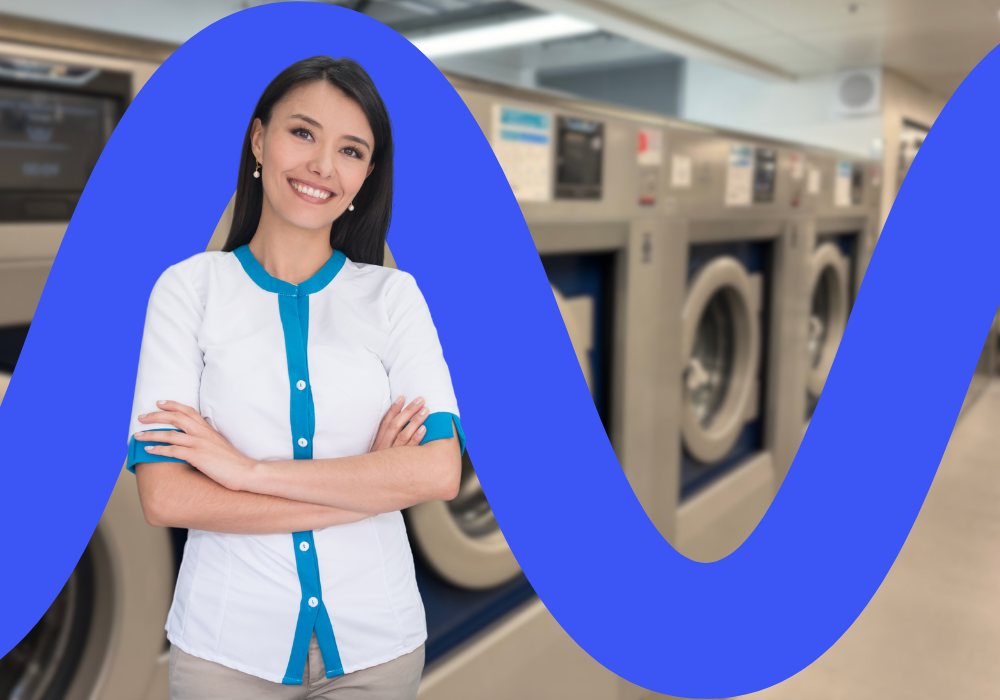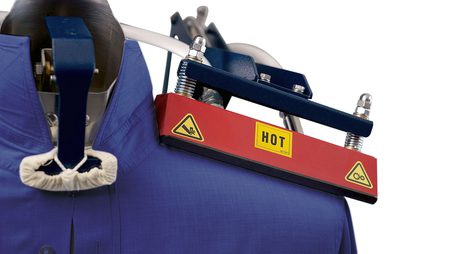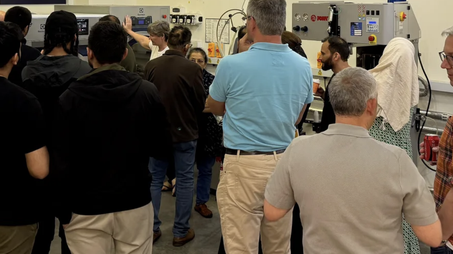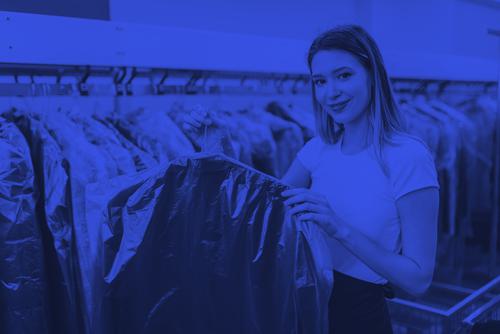
How to Choose the Right Laundry Finishing Equipment for Your BusinessHow to Choose the Right Laundry Finishing Equipment for Your Business
Investing in commercial laundry finishing equipment is a big decision for any UK business. Whether you run a bustling hotel, a busy restaurant, a crucial healthcare facility, or a high-volume commercial laundry service, the right machinery can transform your operations. It can enhance efficiency, reduce labour costs, improve the lifespan of your linens, and – crucially – elevate the perception of your business through impeccably finished textiles.

But with so many types of equipment available, how do you know which is the right fit for your specific needs?
At Wavepoint, we believe in empowering our clients with the knowledge to make confident choices. This guide will walk you through the key factors to consider, helping you navigate the options and invest wisely.
1. Understand Your Laundry Volume & Throughput Needs
The first and most fundamental question to ask is: How much laundry do you process, and how quickly do you need it finished?
- Low Volume (e.g., small guest house, boutique restaurant): If you're dealing with a smaller, manageable amount of laundry daily, you might not need the largest, most automated machines. A high-quality industrial laundry press or a versatile finishing table might suffice for specific garments, while a smaller roller ironer could handle flatwork. The focus here might be on quality over sheer speed.
- Medium Volume (e.g., medium-sized hotel, busy restaurant group, small commercial laundry): As your volume increases, efficiency becomes more critical. You'll likely need a combination of dedicated machines, such as a mid-sized commercial rotary ironer for flatwork and potentially a form finisher for uniforms, or a more automated laundry folder. The goal is to reduce bottlenecks and improve workflow.
- High Volume (e.g., large hotel chains, NHS laundries, large commercial laundries): For operations processing thousands of items daily, automation and continuous flow are paramount. This means larger, high-speed rotary ironers with integrated folders and stackers, and potentially tunnel finishers for garment processing. The investment is higher, but the labour savings and throughput justify it.
Think about peak times: Don't just consider your average daily load. What happens during your busiest periods? Your equipment needs to be able to cope without compromising quality or causing delays.

2. Identify Your Primary Linen Types
The type of textiles you process directly dictates the kind of finishing equipment you'll need.
- Flatwork (Sheets, Duvet Covers, Tablecloths, Napkins): If these are your primary items, a commercial rotary ironer is indispensable. The size and heating method (electric, gas, steam) will depend on your volume and available utilities. Pairing it with an automatic folder and stacker will dramatically increase efficiency. You can view our range of roller ironers for these items.
- Shaped Garments (Shirts, Uniforms, Trousers, Suits, Dresses): For items that need a defined shape, creases, or specific finishes, you'll be looking at different solutions:
- Industrial Laundry Presses: Perfect for sharp creases on trousers, crisp collars on shirts, and a tailored look for suits and other uniforms. Our Pony finishing tables and presses offer exceptional control and quality.
- Form Finishers: Ideal for quickly de-wrinkling and shaping jackets, shirts, and other hanging garments. They use a combination of steam and hot air to restore the garment's original form.
- Tunnel Finishers: For extremely high volumes of hanging garments (like large batches of uniforms), these continuous systems offer unparalleled speed.
- Towels: While some rotary ironers can handle certain towels, dedicated towel folders are highly efficient for neatly folding and stacking large quantities of towels, ensuring consistent presentation.
- Mixed Laundry: Most businesses handle a mix. In this case, you'll need a combination of different finishing machines to create a comprehensive and efficient laundry workflow.
3. Consider Your Available Space and Layout
Commercial laundry equipment can vary significantly in footprint. Before you even start looking at models, measure your available space carefully.
- Floor Area: Do you have enough room for the machine itself, plus adequate working space around it for operators and linen flow? Don't forget space for loading, unloading, and maintenance access.
- Ceiling Height: Some larger machines, especially tunnel finishers or industrial boilers, require specific ceiling heights.
- Doorways & Access: Can the equipment actually be moved into your laundry room? This is often overlooked but can become a major logistical headache.
- Workflow Integration: Think about the flow of laundry from washing to drying to finishing, and then storage/delivery. The equipment should fit into a logical, efficient path to minimise unnecessary movement and handling.
4. Evaluate Your Budget and Financing Options
Investment in quality finishing equipment ranges widely, from a few thousand pounds for a professional press to hundreds of thousands for a fully automated system.
- Upfront Cost vs. Long-Term Value: Don't just look at the purchase price. A cheaper machine might have higher running costs, more breakdowns, or a shorter lifespan, making it more expensive in the long run.
- Return on Investment (ROI): This is crucial. How quickly will the machine pay for itself through:
- Reduced Labour Costs: The biggest saving. How many staff hours will this machine save daily/weekly?
- Improved Linen Lifespan: Less damage from better finishing means replacing linens less often.
- Increased Throughput: Can you handle more laundry without increasing staff or hours, potentially allowing you to take on new clients or services?
- Enhanced Customer Satisfaction: While harder to quantify, the value of consistently perfectly finished linens can boost reputation and repeat business.
- Financing Solutions: Very few businesses purchase high-value equipment outright. Explore options like:
- Leasing: Spreads the cost over time, often preserving capital and offering tax benefits.
- Hire Purchase: Allows you to eventually own the equipment after a series of payments.
- Loans: Traditional bank loans. Knowing your options for acquiring equipment is vital. Dive into financing commercial laundry finishing equipment: lease vs. buy to understand the implications of each.
5. Prioritise Energy Efficiency and Running Costs
In today's climate, and with rising utility costs, energy efficiency isn't just a bonus – it's a necessity.
- Energy Source: Machines can be electric, gas, or steam-heated. Consider your existing utility infrastructure and the cost of each.
- Heat Recovery Systems: Some modern ironers and finishers incorporate heat recovery, significantly reducing energy consumption.
- Smart Technology: Features like automatic shut-off, variable speed drives, and precise temperature controls contribute to lower running costs.
- Boilers: Remember, many finishing machines rely on steam from commercial boilers. The efficiency of your boiler directly impacts your overall energy consumption. Pony, for example, now manufactures built-in boilers in-house for many of their machines, ensuring optimal efficiency and quality from the core of the product. This kind of integrated design is key to minimising long-term energy consumption.
- Long-Term Savings: Investing a little more upfront in an energy-efficient model can lead to substantial savings over the machine's lifespan.
6. Consider Reliability, Maintenance, and After-Sales Support
A machine that constantly breaks down isn't saving you money – it's costing you time, money, and customer satisfaction.
- Brand Reputation: Research manufacturers known for reliability and durability. Brands like Pony, which Wavepoint has proudly represented for over 50 years, are built to industrial quality for longevity.
- Ease of Maintenance: How easy is it to perform routine cleaning and preventative maintenance? This impacts downtime and operational costs.
- Spare Parts Availability: Can you easily get replacement parts in the UK? This is crucial for quick repairs.
- Service & Support: What kind of after-sales service does the supplier offer? Do they have trained technicians in the UK? Quick, reliable support is essential to minimise costly downtime.
7. Think About Future Scalability
Your business today might not be your business five years from now. Can the equipment you choose grow with you?
- Modularity: Can you add on additional units (e.g., another folder, or a second ironer) as your volume increases?
- Upgradability: Are there software or hardware upgrades that can extend the machine's life or improve its capabilities?
- Flexibility: Can the equipment handle a slightly different mix of laundry if your business model shifts?

Making Your Informed Choice
Choosing the right laundry finishing equipment is a strategic decision that impacts your operational efficiency, your financial bottom line, and your brand's reputation. By carefully considering your volume, linen types, space, budget, energy efficiency, and the long-term support, you can make an investment that truly benefits your business for years to come.
At Wavepoint, we're here to help. Our team of experts understands the unique needs of UK businesses and can provide tailored advice to ensure you select the perfect finishing solutions.
Ready to take the next step?
- Explore our comprehensive range of commercial laundry finishing equipment.
- Contact us today for a personalised consultation and a quote tailored to your business.
Latest articles

Financing Commercial Laundry Finishing Equipment: Lease vs. Buy
Acquiring new commercial laundry finishing equipment is a significant step for any UK business looking to…
Read more
Types of Commercial Laundry Finishing Equipment and Their Uses
In our previous guide, we explored what laundry finishing is and why it matters for businesses across the UK.…
Read more
Leather & Trainer Cleaning Workshop – A Recap
Recently, we had the pleasure of hosting our Skills Workshop on Leather and Trainer Cleaning, and we couldn’t…
Read more